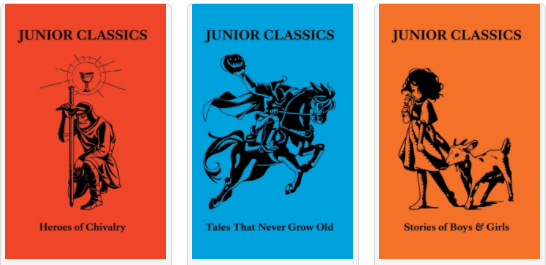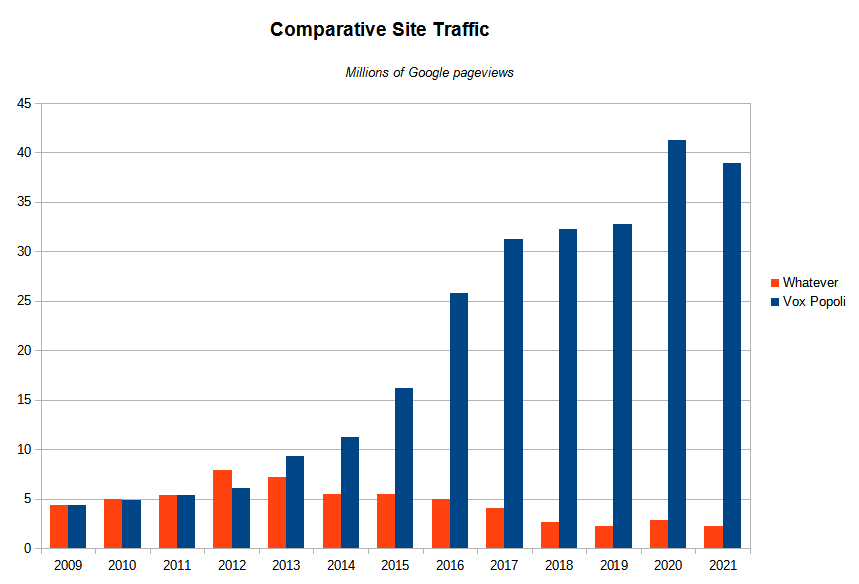2021 was, in some ways, the one-step back year that hopefully presages a two-steps forward year. The big news, with regards to the blog, was that Google blocked access to it in August, which necessitated the activation of the long-ready backup plan that permitted a seamless transition from voxday.blogspot.com to voxday.net. However, combined with the elimination of blog comments in favor of SocialGalactic, this had the effect of significantly reducing the overall number of daily pageviews by about three-quarters, as the monthly traffic went from 4,279,064 pageviews in July to 1,060,917 in September.
This is not a problem. Truly. Nietzsche wasn’t right about very much, but he was correct in observing how that which doesn’t kill you makes you stronger. Strategically speaking, it’s much better to be on our own platform, as future integrations that are now possible will eventually demonstrate.
In 2021, Vox Popoli had 38,884,355 Google pageviews, down 5.9 percent from last year. The blog is now running at an average rate of 36,091 daily pageviews, down 68.1 percent from an average 113,255 last year. Total historic blog views closed out the year at 252,554,766, The running annual pageview totals are as follows:
2008: 3,496,757
2009: 4,414,801
2010: 4,827,183
2011: 5,422,628
2012: 6,098,774
2013: 9,340,663
2014: 11,236,085
2015: 16,211,875
2016: 25,817,343
2017: 31,216,357
2018: 32,260,094
2019: 32,757,068
2020: 41,338,037
2021: 38,884,355
Sadly, John Scalzi did not post his actual pageviews again this year, although he did describe his annual traffic in sufficient detail to permit a reasonable comparison to The Most Popular Blog in Science Fiction. “I’d also like to bump up visits; 2021 visits were down slightly from 2020, although about equal to 2019.” Apparently he also bought an old church in his town, which is actually pretty cool.
The primary accomplishment in 2021 was the successful launch of Arktoons, which now features over 60 series, 1200 episodes, recently hit four million views, and is currently averaging nearly as many daily views as this blog. Unauthorized had a solid 2021 and closed out the year very well, with record subscriptions and revenue in December. Castalia Library struggled thanks to Covid-related issues at the bindery, but with the new bindery coming online and the US bindery getting its act together, there is reason to anticipate an exceptional 2022.
On the writing front, I did not finish A Sea of Skulls in 2021 nor did Castalia House get the entire 10-volume Junior Classics 2020 edition published, but we did get volumes 1-6 finished by the end of the year. However, both publishing objectives WILL be accomplished in 2022, and most likely before July. And we did get the entirety of the There Will Be War series published as planned.
Thanks to all of you for your staunch and steadfast support. We have some very exciting new projects to announce in 2022, beginning as soon as next week, so please to enjoy the ride that never ends.
DISCUSS ON SG


